Publications
Articles, publications, books, tools and multimedia features from the U.S. Institute of Peace provide the latest news, analysis, research findings, practitioner guides and reports, all related to the conflict zones and issues that are at the center of the Institute’s work to prevent and reduce violent conflict.
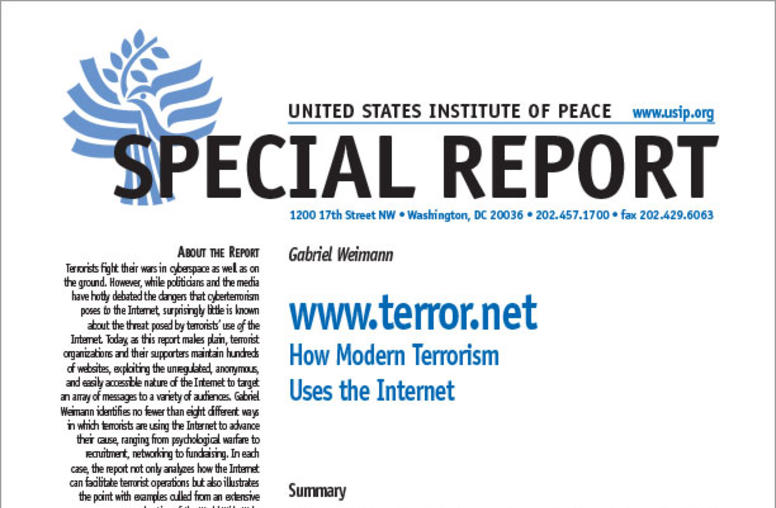
www.terror.net: How Modern Terrorism Uses the Internet
Summary The great virtues of the Internet—ease of access, lack of regulation, vast potential audiences, and fast flow of information, among others—have been turned to the advantage of groups committed to terrorizing societies to achieve their goals. Today, all active terrorist groups have established their presence on the Internet. Our scan of the Internet in 2003–4 revealed hundreds of websites serving terrorists and their supporters.
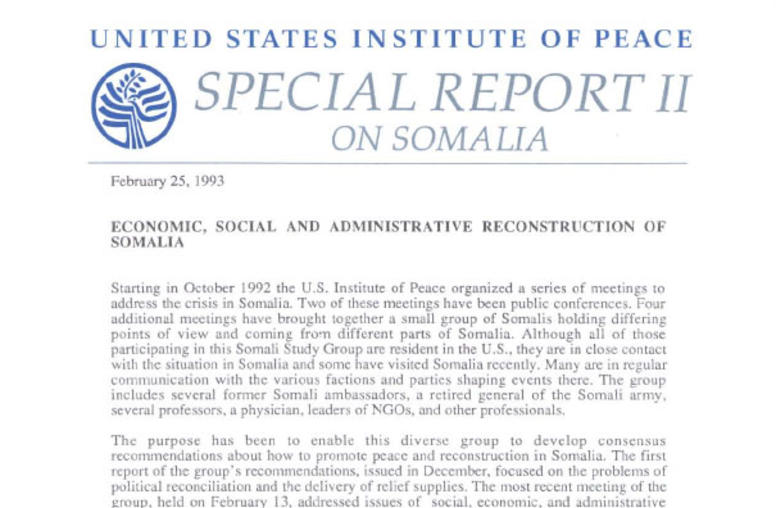
Economic, Social and Administrative Reconstruction of Somalia
Starting in October 1992 the U.S. Institute of Peace orgnized a series of meetings to address the crisis in Somalia. The meetings included several former Somali ambassadors, a retired general of the Somali army, several professors, a physician, leaders of NGOs, and other professionals.
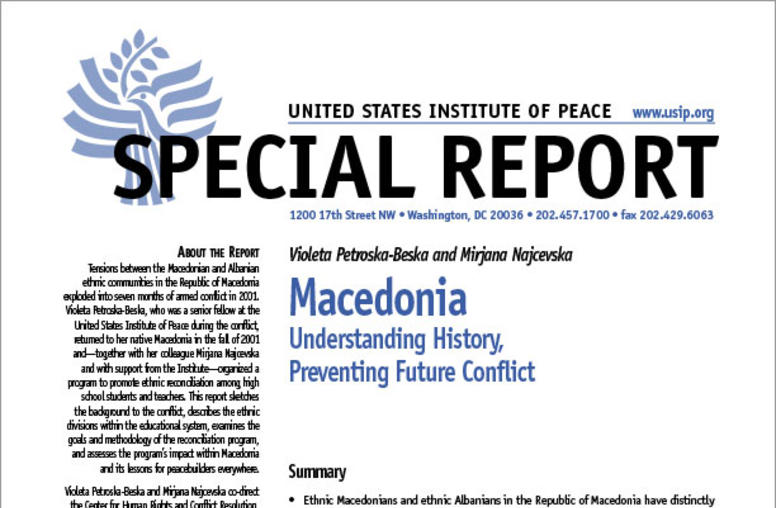
Macedonia: Understanding History, Preventing Future Conflict
Ethnic Macedonians and ethnic Albanians in the Republic of Macedonia have distinctly different but equally ethnocentric views of the causes and course of the armed conflict in 2001. These attitudes, which are largely emotionally driven and fueled by prejudice, are likely to stifle efforts to overcome existing animosities and may well sow the seeds of future conflicts.
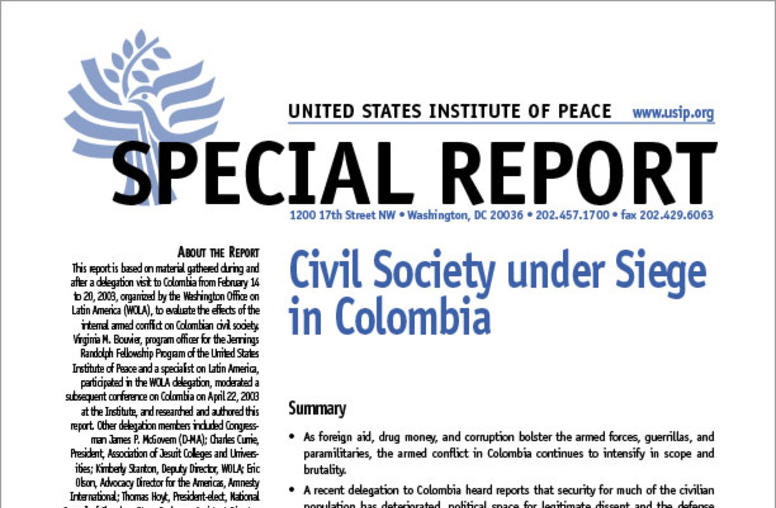
Civil Society Under Siege in Colombia
This report is based on material gathered during and after a delegation visit to Colombia from February 14 to 20, 2003, organized by the Washington Office on Latin America (WOLA), to evaluate the effects of the internal armed conflict on Colombian civil society.
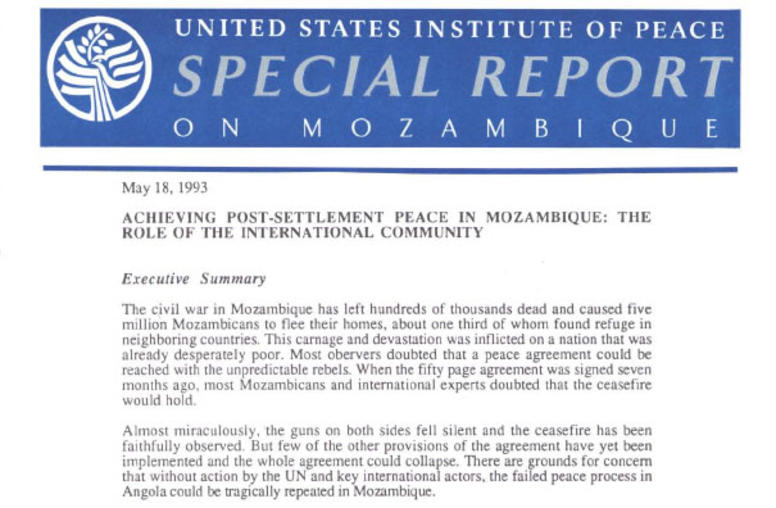
Achieving Post-Settlement Peace in Mozambique: The Role of the International Community
Summary The civil war in Mozambique has left hundreds of thousands dead and caused five million Mozambicans to flee their homes, about one third of whom found refuge in neighboring countries. This carnage and devastation was inflicted on a nation that was already desperately poor. Most observers doubted that a peace agreement could be reached with the unpredictable rebels. When the fifty page agreement was signed, most Mozambicans and international experts doubted that the ceasefire would ...
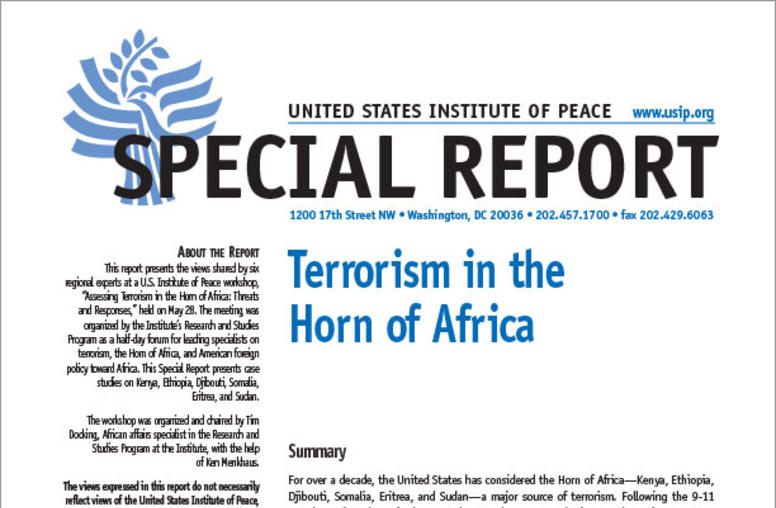
Terrorism in the Horn of Africa
Summary For over a decade, the United States has considered the Horn of Africa—Kenya, Ethiopia, Djibouti, Somalia, Eritrea, and Sudan—a major source of terrorism. Following the 9-11 attacks against the United States, the Horn has come under increased scrutiny as a strategic focal point in the war against terrorism. In May 2003, the Kenyan government admitted that a key member of the al Qaeda terror network was plotting an attack on western targets, confirming al Qaeda's firm local ...
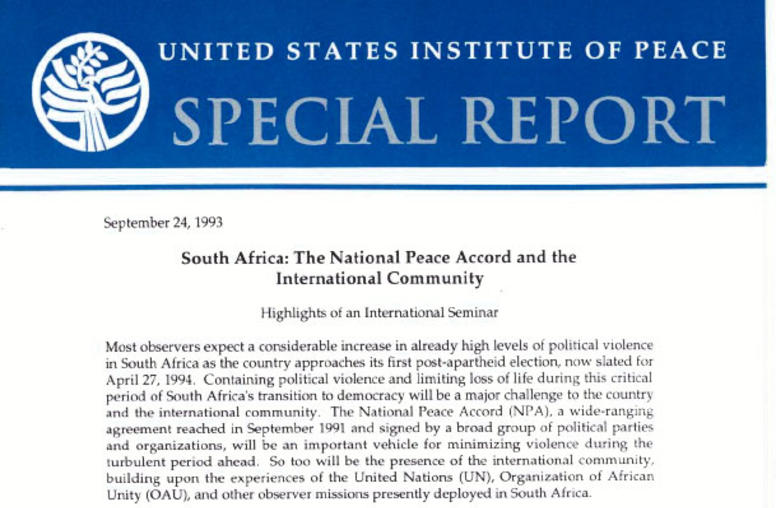
South Africa: The National Peace Accord and the International Community
The United States Institute of Peace brought together National Peace Accord officials, United Nations and Organization of African Unity officials, political party representatives, and representatives of conflict resolution non-governmental organizations (NGOs) for a public workshop in late July 1993 to discuss the linkages between the international community and the Peace Accord structures.
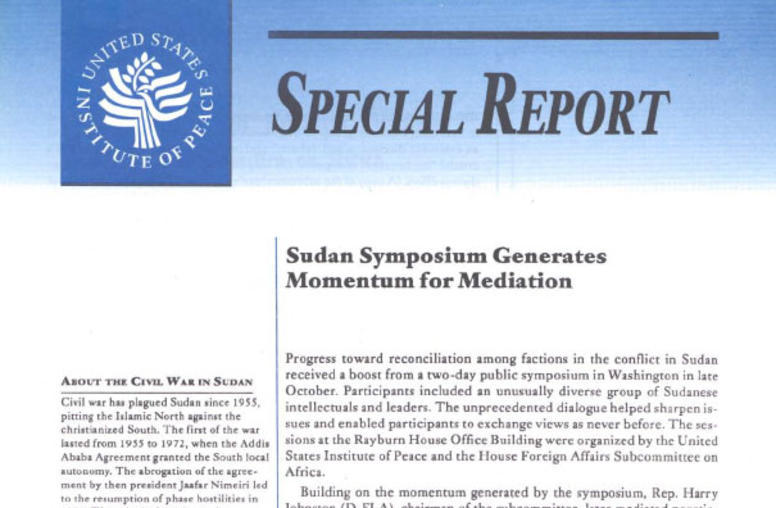
Sudan Symposium Generates Momentum for Mediation
Civil war has plagued Sudan since 1955, pitting the Islamic North against the Christianized South. The first of the war lasted from 1955 to 1972, when the Addis Ababa Agreement granted the South local autonomy. This report summarized the two-day public symposium, held in Washington at the Rayburn House Office Building, and organized by the United States Institute of Peace and the House Foreign Affairs Subcommittee on Africa. The symposium promoted reconciliation among factions in the conflic...
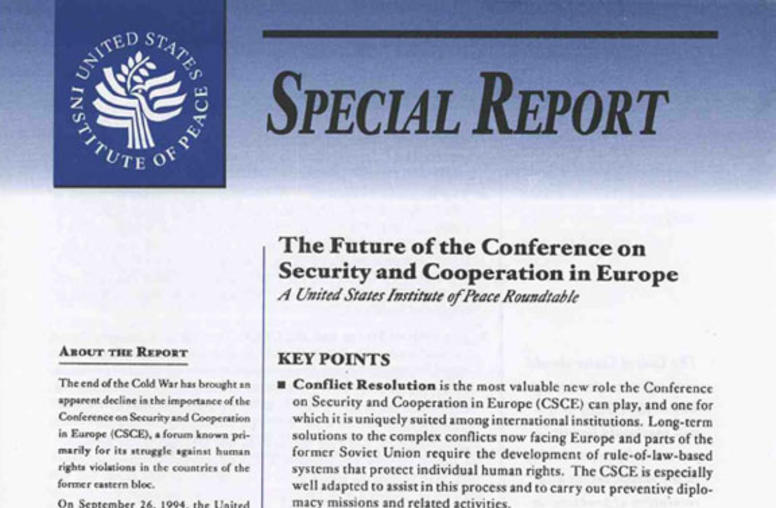
The Future of the Conference in Security and Cooperation in Europe
The end of the Cold War has brought an apparent decline in the importance of the Conference on Security and Cooperation in Europe (CSCE), a forum known primarily for its struggle against human rights violations in the countries of the former eastern bloc.
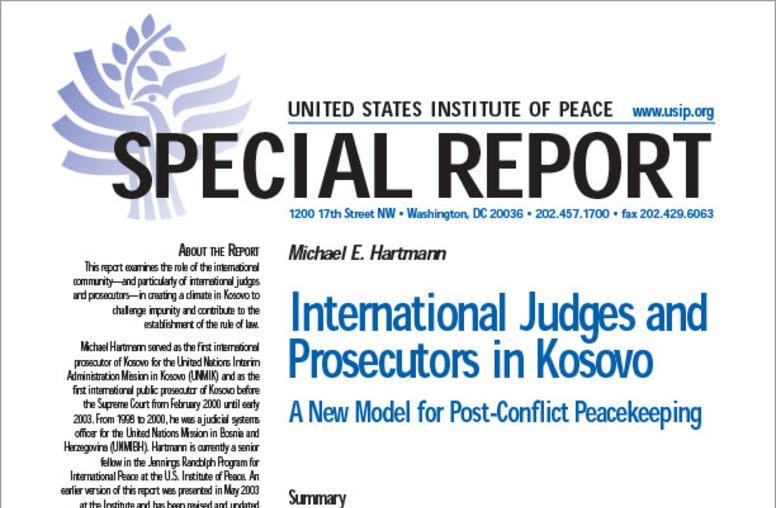
International Judges and Prosecutors in Kosovo: A New Model for Post-Conflict Peacekeeping
This report examines the role of the international community—and particularly of international judges and prosecutors—in creating a climate in Kosovo to challenge impunity and contribute to the establishment of the rule of law.